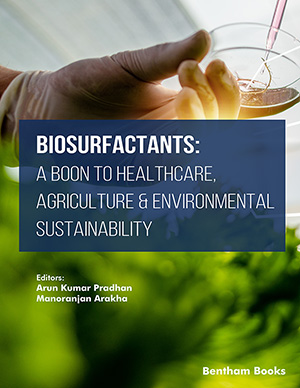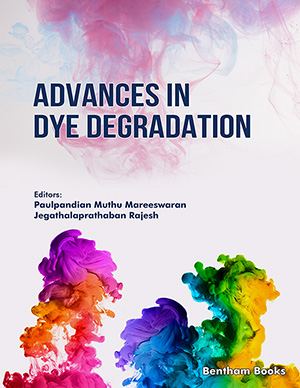Abstract
The gut microbiome interacts with host physiology through various mechanisms, including the cardiovascular (CV) system. A healthy microbiome has the ability to process and digest complex carbohydrates into short-chain fatty acids (SCFA). These SCFA function as signaling molecules, immune-modulating molecules, and energy sources. However, when the microbiome is altered, it produces gut dysbiosis with overgrowth of certain bacteria that may lead to overproduction of trimethylamine-N-oxide (TMAO) from the metabolism of phosphatidylcholine, choline, and carnitine; dysbiosis also leads to increased intestinal permeability allowing the microbiome-derived lipopolysaccharide (LPS), a bacterial endotoxin, to enter the blood circulation, triggering inflammatory responses. An altered gastrointestinal (GI) tract environment and microbiome- derived metabolites are associated with CV events. Disrupted content and function of the microbiome leading to elevated TMAO and LPS levels, altered bile acid metabolism pathways, and SCFA production are associated with an increased risk of CV diseases (CVD), including atherosclerosis, myocardial infarction, thrombosis, arrhythmias, and stroke. Therapeutic interventions that may favorably influence a dysbiotic GI tract profile and promote a healthy microbiome may benefit the CV system and lead to a reduction of CVD incidence in certain situations. These issues are herein reviewed with a focus on the spectrum of microbiota-related CVD, the mechanisms involved, and the potential use of microbiome modification as a possible therapeutic intervention.
Keywords: Microbiome, microbiota, cardiovascular disease, metabolic syndrome, trimethylamine-N-oxide, human GI tract.
Current Medicinal Chemistry
Title:Gut Microbiota and Cardiovascular Disease: Symbiosis Versus Dysbiosis
Volume: 29 Issue: 23
Author(s): Antonis A. Manolis, Theodora A. Manolis, Helen Melita and Antonis S. Manolis*
Affiliation:
- First Department of Cardiology, Athens University School of Medicine, Athens, Greece
Keywords: Microbiome, microbiota, cardiovascular disease, metabolic syndrome, trimethylamine-N-oxide, human GI tract.
Abstract: The gut microbiome interacts with host physiology through various mechanisms, including the cardiovascular (CV) system. A healthy microbiome has the ability to process and digest complex carbohydrates into short-chain fatty acids (SCFA). These SCFA function as signaling molecules, immune-modulating molecules, and energy sources. However, when the microbiome is altered, it produces gut dysbiosis with overgrowth of certain bacteria that may lead to overproduction of trimethylamine-N-oxide (TMAO) from the metabolism of phosphatidylcholine, choline, and carnitine; dysbiosis also leads to increased intestinal permeability allowing the microbiome-derived lipopolysaccharide (LPS), a bacterial endotoxin, to enter the blood circulation, triggering inflammatory responses. An altered gastrointestinal (GI) tract environment and microbiome- derived metabolites are associated with CV events. Disrupted content and function of the microbiome leading to elevated TMAO and LPS levels, altered bile acid metabolism pathways, and SCFA production are associated with an increased risk of CV diseases (CVD), including atherosclerosis, myocardial infarction, thrombosis, arrhythmias, and stroke. Therapeutic interventions that may favorably influence a dysbiotic GI tract profile and promote a healthy microbiome may benefit the CV system and lead to a reduction of CVD incidence in certain situations. These issues are herein reviewed with a focus on the spectrum of microbiota-related CVD, the mechanisms involved, and the potential use of microbiome modification as a possible therapeutic intervention.
Export Options
About this article
Cite this article as:
Manolis A. Antonis , Manolis A. Theodora , Melita Helen and Manolis S. Antonis*, Gut Microbiota and Cardiovascular Disease: Symbiosis Versus Dysbiosis, Current Medicinal Chemistry 2022; 29 (23) . https://dx.doi.org/10.2174/0929867328666211213112949
| DOI https://dx.doi.org/10.2174/0929867328666211213112949 |
Print ISSN 0929-8673 |
| Publisher Name Bentham Science Publisher |
Online ISSN 1875-533X |
Call for Papers in Thematic Issues
Advances in Medicinal Chemistry: From Cancer to Chronic Diseases.
The broad spectrum of the issue will provide a comprehensive overview of emerging trends, novel therapeutic interventions, and translational insights that impact modern medicine. The primary focus will be diseases of global concern, including cancer, chronic pain, metabolic disorders, and autoimmune conditions, providing a broad overview of the advancements in ...read more
Approaches to the treatment of chronic inflammation
Chronic inflammation is a hallmark of numerous diseases, significantly impacting global health. Although chronic inflammation is a hot topic, not much has been written about approaches to its treatment. This thematic issue aims to showcase the latest advancements in chronic inflammation treatment and foster discussion on future directions in this ...read more
Cellular and Molecular Mechanisms of Non-Infectious Inflammatory Diseases: Focus on Clinical Implications
The Special Issue covers the results of the studies on cellular and molecular mechanisms of non-infectious inflammatory diseases, in particular, autoimmune rheumatic diseases, atherosclerotic cardiovascular disease and other age-related disorders such as type II diabetes, cancer, neurodegenerative disorders, etc. Review and research articles as well as methodology papers that summarize ...read more
Chalcogen-modified nucleic acid analogues
Chalcogen-modified nucleosides, nucleotides and oligonucleotides have been of great interest to scientific research for many years. The replacement of oxygen in the nucleobase, sugar or phosphate backbone by chalcogen atoms (sulfur, selenium, tellurium) gives these biomolecules unique properties resulting from their altered physical and chemical properties. The continuing interest in ...read more
 78
78
- Author Guidelines
- Graphical Abstracts
- Fabricating and Stating False Information
- Research Misconduct
- Post Publication Discussions and Corrections
- Publishing Ethics and Rectitude
- Increase Visibility of Your Article
- Archiving Policies
- Peer Review Workflow
- Order Your Article Before Print
- Promote Your Article
- Manuscript Transfer Facility
- Editorial Policies
- Allegations from Whistleblowers
- Announcements
Related Articles
-
Research Progress in Competitive Purine Antagonists
Current Medicinal Chemistry Body Fat Distribution Contributes to Defining the Relationship between Insulin Resistance and Obesity in Human Diseases
Current Diabetes Reviews Prostate Cancer Prevention in the Developing World - What are we Waiting for?
Current Pharmacogenomics and Personalized Medicine Quorum Sensing Inhibitors from the Sea: Lessons from Marine Symbiotic Relationships
Current Organic Chemistry Interplay Between ACE2 and Angiotensin-(1-7) in the Regulation of Blood Pressure
Current Hypertension Reviews Flexible Estrogen Receptor Modulators: Synthesis, Biochemistry and Molecular Modeling Studies for 3-Benzyl-4,6-diarylhex-3-ene and 3,4,6-Triarylhex-3-ene Derivatives
Medicinal Chemistry Malnutrition could Predict 3-month Functional Prognosis in Mild Stroke Patients: Findings from a Nationwide Stroke Registry
Current Neurovascular Research Pain Management in Hematological Patients with Major Organ Dysfunctions and Comorbid Illnesses
Cardiovascular & Hematological Agents in Medicinal Chemistry Activity and Structure Elucidation of Ceramides
Current Bioactive Compounds Preterm Birth and the Risk of Neurodevelopmental Disorders - Is There a Role for Epigenetic Dysregulation?
Current Genomics Administration of a Synbiotic to Free-Living Elderly and Evaluation of Serum Cytokines. A Pilot Study
Current Pharmaceutical Design Current Applications of Artificial Neural Networks in Biochemistry with Emphasis on Cancer Research
Current Biochemical Engineering (Discontinued) The Patents on Glucocorticosteroids and Selected New Therapies for the Management of Asthma in Children: Update
Recent Patents on Inflammation & Allergy Drug Discovery The Potential of Milk-Derived Exosomes for Drug Delivery
Current Drug Delivery Preface:
Current Topics in Medicinal Chemistry Nitric Oxide Synthase and Cyclooxygenase Pathways: A Complex Interplay in Cellular Signaling
Current Medicinal Chemistry Disorders of Mineral Metabolism in the Newborn
Current Pediatric Reviews Design of Bioartificial Pancreas with Functional Micro/Nano-Based Encapsulation of Islets
Current Pharmaceutical Biotechnology Impact of Angiotensin Converting Enzyme Inhibitors/Angiotensin Receptors Blockers on Mortality in Acute Heart Failure Patients with Left Ventricular Systolic Dysfunction in the Middle East: Observations from the Gulf Acute Heart Failure Registry (Gulf CARE)
Current Vascular Pharmacology Regulation of Vascular Genes by Glucose
Current Pharmaceutical Design



























